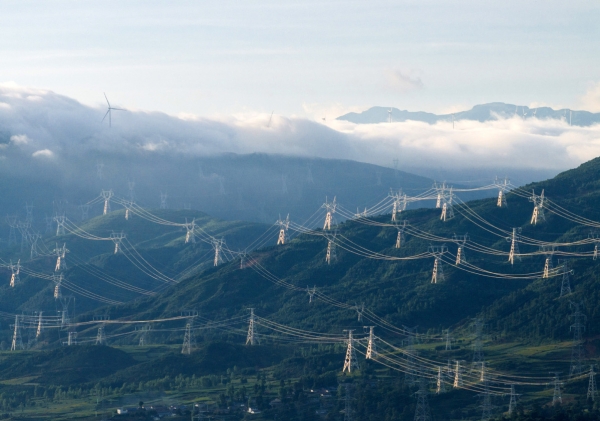
An overview of the power transmission wires that connects the Baihetan hydropower plant and a power convertor facility in Sichuan province, Aug 2, 2024. [Photo/Xinhua]
The world's largest clean energy corridor, consisting of six mega hydropower stations on China's Yangtze River, had a record peak output of over 70 million kilowatts on July 31, to meet the growing power demand in China, according to the operator of these stations.
One of the hydropower stations, the Baihetan hydropower plant located in the upper section of the Yangtze River in Southwest China, reached an output of 16 million kilowatts on the same day, achieving its first full-capacity operation since it began production, said its operator China Three Gorges Corp.
The company will continue stepping up efforts ensuring power supplies during the peak summer season, coordinating with grid operators in the country to continuously increase the power supply from the world's largest clean energy corridor, it said.
With China currently in a critical period of flood prevention and peak summer electricity demand, the company will continue to strengthen hydropower forecasting and make every effort to ensure flood control safety, as well as the national energy security.
The world's largest clean energy corridor generated more electricity in 2023, producing over 276 billion kilowatt-hours of electricity last year, up 5.34 percent year-on-year, equivalent to reducing standard coal consumption by around 83 million metric tons and lowering carbon dioxide emissions by more than 200 million tons.
The corridor was completed in December 2022, including the Baihetan, Wudongde, Xiluodu, Xiangjiaba, Three Gorges and Gezhouba hydropower stations.
The six hydropower plants transmit electricity from the resource-rich west to energy-consuming regions in the east. Their total installed capacity is around 71.7 million kilowatts, it said earlier.